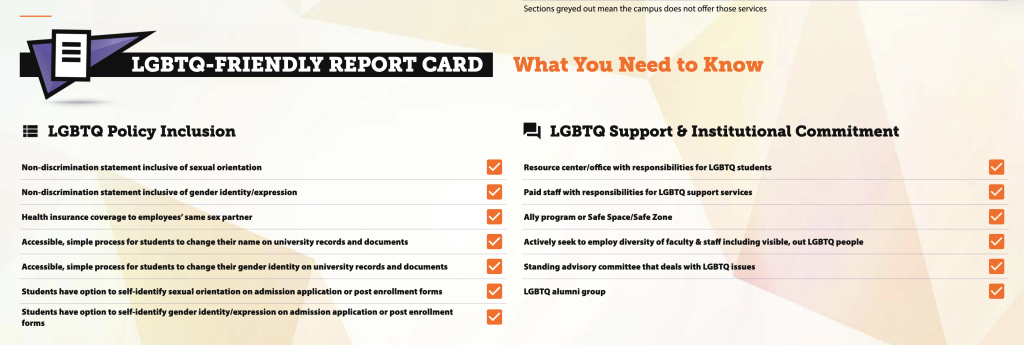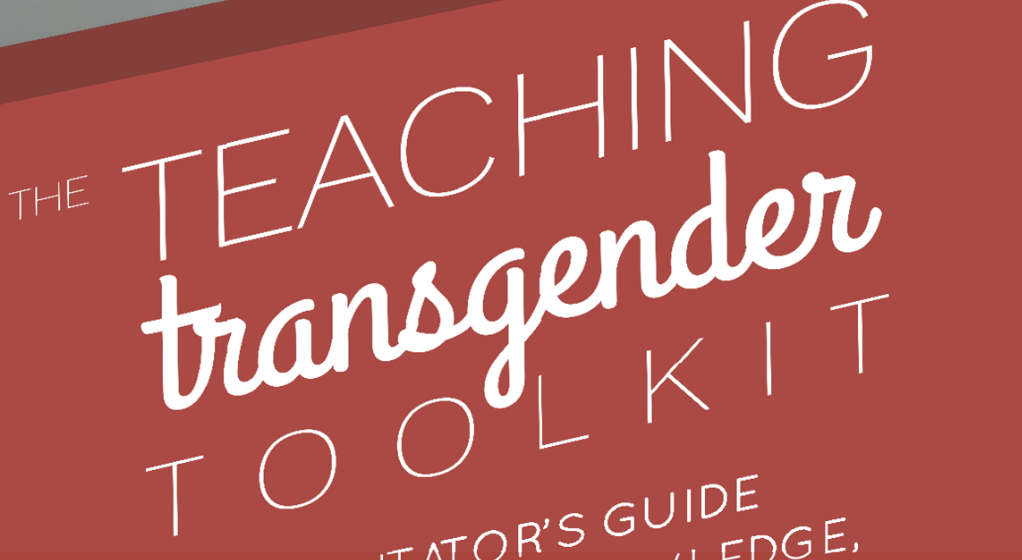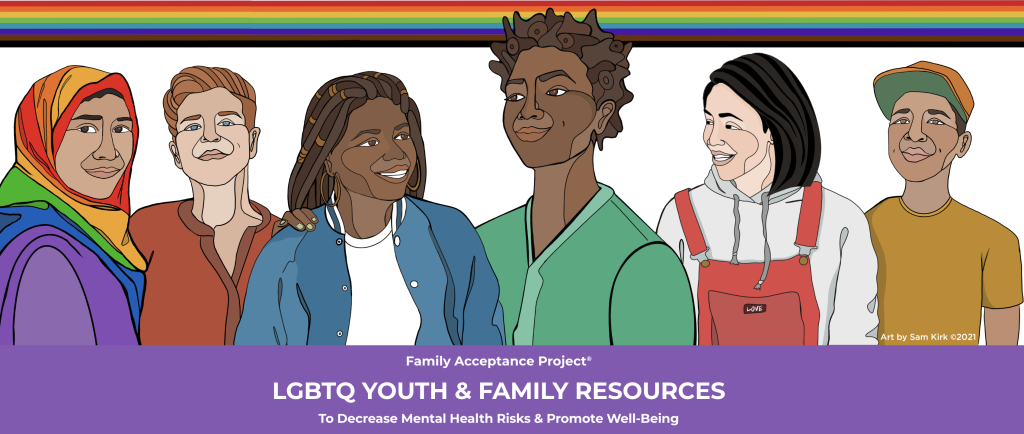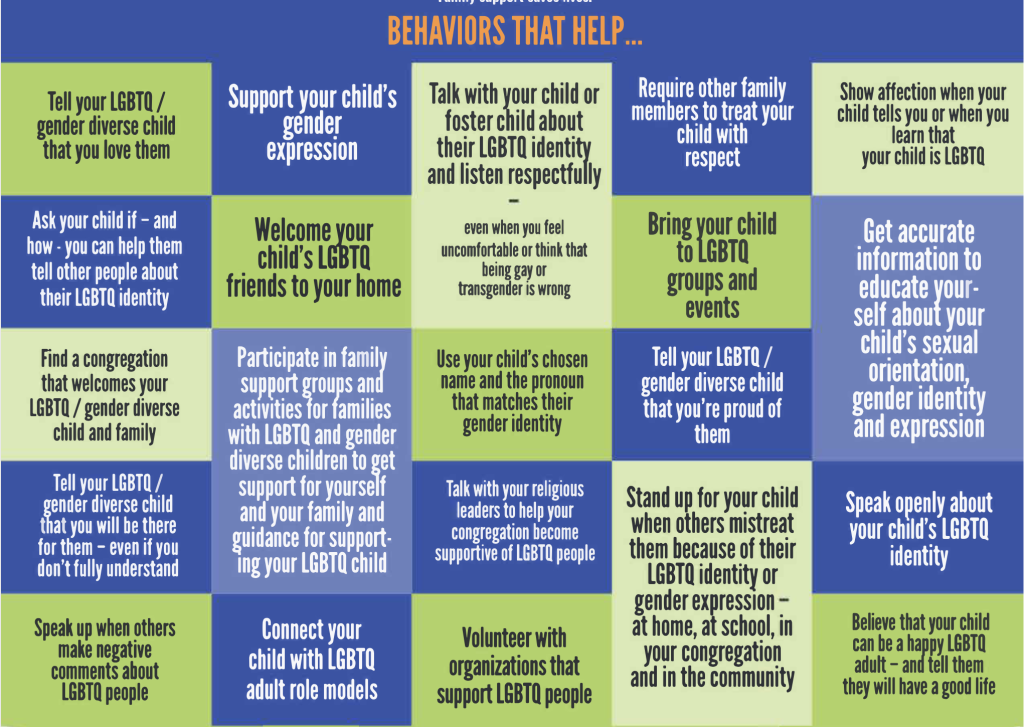
Thank you for attending our community discussion on LGBTQIA+ experiences in STEM. We want to share these resources with you so you can better support yourself and the whole LGBT+ community. For more information, please contact Erin Nishimura.
- Erin Osborne Nishimura, Colorado State University
- David Wynne, University of Portland
RESOURCES:

- oSTEM
- What is it: Out in Science, Technology, Engineering, and Mathematics (oSTEM), Inc. is a 501(c)(3) non-profit professional association for LGBTQ+ people in the STEM community. With over 100 student chapters at colleges/universities and professional chapters in cities across the United States and abroad, oSTEM is the largest chapter-based organization focused on LGBTQ+ people in STEM.
- Envision a world where LGBT+ scientists are empowered and safe
- Start a campus chapter
- Attend a nation-wide conference
- Get paired with a mentor in your field and/or who shares your identities

- The Campus Pride Index
- Report Card of PRIDE support
- Look up or register your college or university
- Use the checklist to learn about how to better support your LGBTQIA+ population


- The Teaching Transgender Toolkit
- Grants available
- Lessons and workshops
- Your organization can review practices to identify barriers and gaps for transgender students
Resources for name change – Pubmed, journals, etc
Changing your name on past publications and in Pubmed is possible. Here are some resources. We will update these.
- Guidance on author name change through COPE – Committee on Publication Ethics
- Best practices for journals – from COPE
- Medium article on TransInclusive Publishing and why it matters
- If you would like specific help on this, please e-mail Erin Nishimura. I have a database on publications and where to start with each.

The Family Acceptance Project
- San Francisco State University has developed this program that improves LGBT+ support, especially from conservative and un-accepting families. They are on the leading edge of researching and implementing approaches that improve outcomes between LGBT+ students and their families.
- Resources, crisis intervention, faith-based approaches, printable posters

Gender Inclusive Language – Teaching Resources
How can we be more inclusive in biology and life science classrooms? Here are some resources.
- “It’s completely erasure”: A Qualitative Exploration of Experiences of Transgender, Nonbinary, Gender Nonconforming, and Questioning Students in Biology Courses. This is a pedagogical study that asks how gender-associated language in life science courses influences the achievement, success, and sense of belonging among queer students. It includes suggestions for more inclusive language.
- Creating cell biology courses inclusive for people who are intersex and/or have queer genders. A short and simple article by the same authors as above with suggestions around gender-inclusive language in the classroom.
Gender Inclusive Language – Theses, Dissertations, and Other Publications
When mentoring students writing theses on topics that include sex-specific diseases, chromosome biology, or reproductive biology topics, it is sometimes difficult to incorporate quotes or graphics from past publications that did not use gender-inclusive language. One student of mine, added the following paragraph early in their thesis document:
Please note that publications on PCOS have classically used the terms “female” or “women” to define the patients affected, however, I wish to acknowledge that PCOS also impacts people over a spectrum of genders including non-binary people and transgender men. I will use gender-inclusive terminology when possible and in general statements, but when referencing research works, I will use the gender terminology reported by the authors of that study.
— Emma Byrne
WORKSHOPS:
These types of workshops have been helpful at Colorado State University to educate our faculty, members, and student population. Our PRIDE center offers these workshops but your campus may, too. We have found that it is helpful to offer a variety of different duration and level of workshop:
- Quick & Easy Pronouns Workshop
- This is our standard university “customer service” (rec center, dorms, food service, etc) level training in pronouns and their best practices. It is only 50 minutes, low “feelings” and accessible for all
- Mastering the they/them pronoun Workshop
- This workshop is under development. It will teach which people are better or worse at using pronouns and when. This is an effort to illustrate how research finds that most people are worse than they imagine and make mistakes, especially under stress happen. Has activities for practice. Has scripts for correcting and accepting corrections.
- Safe Zone Training Workshop
- Half-day workshop on LGBT+ identities. In-depth training on gender, orientation, expression, and other topics. We watch videos students on campus have made about their lived experiences. We learn about safety.
- I think it’s important to suggest the option for a training Safe Zone training for students/employees who are within the LGBT+ community. Those of us in the community still need to learn but it can sometimes be more comfortable to do so from within the space.
- Sharing back to the larger groups
- We ask that if faculty or students have attended a workshop, they set aside 10 – 15 minutes in their lab’s group meeting or in the faculty meeting to report back to the larger group what was learned. This way we can multiply the educational effect.
- PRIDE community-specific workshops and events
- We do themed workshops for people within the PRIDE community focused on building community, learning new aspects, working through different stages, supportive groups, developing resilience, holiday support, and meeting financial needs. The goal of our center is to help LGBT+ students and employees not just survive, but really thrive.
Thank you to Maggie Hendrickson and the Colorado State University PRIDE Center for assistance in developing this page.